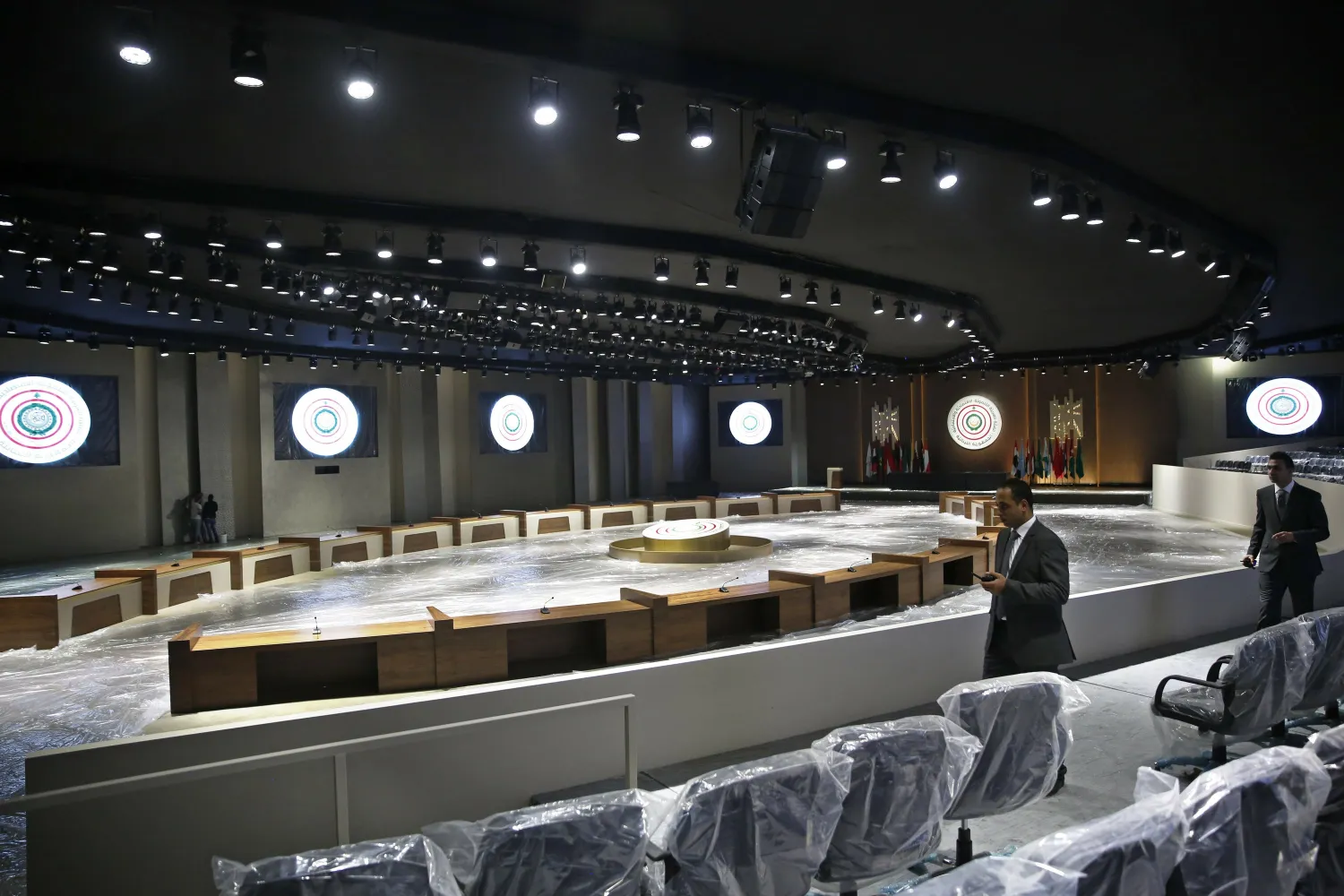The Arab League confirmed Tuesday that it has not been asked to mediate between Beirut and Tripoli, in the wake of Libya’s boycott of the Arab Economic Summit to be held in Beirut this week.
"Libya has officially announced its boycott of the summit in the wake of the burning of its country's flag by the Amal movement in Beirut,” the official spokesman of the Secretary General of the Arab League, Mahmoud Afifi, said.
Libya announced its boycott of the summit after Amal supporters took down a Libyan flag erected on the road leading up to the Biel center in downtown Beirut, where the summit will be held, replacing it with their own.
Afifi deemed the flag tearing incident as "regrettable,” adding, “We will see to where things will be heading.”
The two-day Arab Economic Summit will convene in Beirut on Friday.
Asked about the level of representation, Afifi said: “We look forward to the highest representation from attending countries, however, the hosting state sends invitations and is better informed about the level of representation.”
Reports in Beirut said Monday that the summit would witness a poor attendance at the presidential level given that the event comes shortly before the Arab-European summit, scheduled to be held in February in Egypt’s Sharm el-Sheikh resort.
The summit takes place despite an internal dispute caused by Speaker Nabih Berri, who has expressed his objection to Libya’s invitation after calling for the event’s postponement over the failure to invite Syria.
Berri’s Amal movement objects that Lebanon builds ties with Libya due to the 1978 disappearance of the movement’s founder, Imam Musa Sadr, and two of his companions during an official visit to the country.
Afifi said the summit would tackle several issues, including Arab food safety and challenges faced by UNRWA in the region, particularly in the Occupied Territories.
The summit’s agenda includes two proposals from Jordan concerning economic and social challenges faced by countries hosting Syrian refugees.
Afifi said a high-ranking delegation from the Arab League Secretariat would arrive in Beirut Wednesday to take part in preparatory meetings for the summit.









